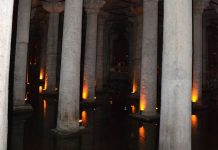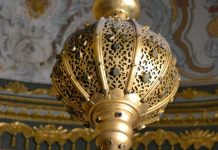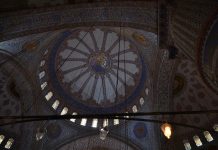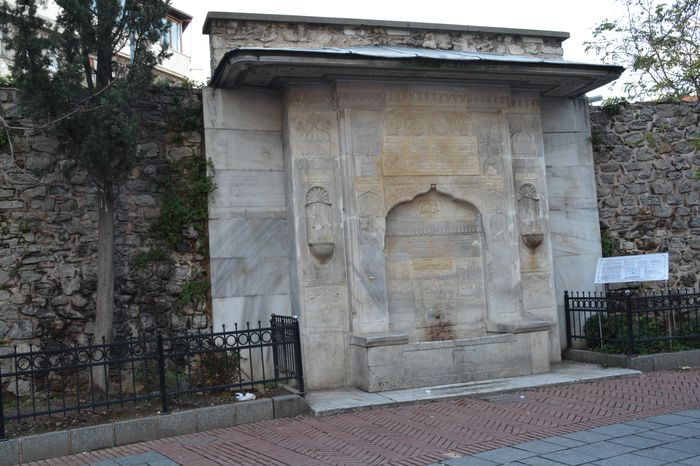And then there is Theoderic’s tomb. Built just outside the city walls of Ravenna, close to the harbor where ships from Constantinople and elsewhere in the Mediterranean docked, this looming structure astonishes visitors to this day. Today it stands alone, set apart from the built-up area of the modern city that serves European tourists and beachgoers. Theoderic finds rest in a surprising white decagon, two stories and thirty- three feet high, a shrine for the lavish porphyry sarcophagus in which his body rested. Over all, the dome or cap is made of a single piece of marble weighing many tons; it was brought down from Istria at the head of the Adriatic. Every attempt to discern barbarian influences and tastes in it has failed. We are left with a relic that stands second only to Hadrian’s mighty tomb in Rome as a statement of imperial grandeur. Augustus’s own tomb in Rome, grandiose enough in its day, fades from memory in this contest.
Tolerance is easy
Tolerance is easy to applaud, and Theoderic has always been applauded, if often patronizingly. Something like “not bad for a barbarian” has been the subtext of many favorable judgments about him over the years. Two sentences from his various public statements have repeatedly attracted such praise, so let us listen to them:
“We cannot impose religion, because no one can be forced to believe against his will.” (Religionem imperare non possumus, quia nemo cogitur ut credat invitus.)
“Obeying the law is the mark of civility.” (Custodia legum civilitatis est indicium.)
For any Christian Roman of this period, these are admirable sentiments. To know what to make of them, we have to go to Genoa personal tours bulgaria.
First, bear in mind the map of Italy. Genoa was important to Theoderic. His center of power and presence stretched from Milan east to Ravenna in northern Italy, with important taproots south to Rome. The western front along the Ligurian coast toward Gaul was sensitive territory. When hostilities broke out in Gaul and the Franks were active and suspected of being in cahoots with Constantinople, Genoese support was important to Theoderic. On two occasions around 510, we can tune in to hear his public voice addressing the Jewish community there. At about the same time, we see him taking particular care to make sure that the grain supply and other expected benefactions were well looked after in that area and in the provinces of Gaul beyond, for he was aware that soldiers, in their passing to and fro, needed to find supplies locally. Even a friendly army passing through your neighborhood could have a devastating effect if the governing regime was not as careful as Theoderic tried to be.
Those Jews of Genoa had addressed their ruler, as they would have done a century or two earlier no less frankly, to ask for permission to renovate and extend their religious property. Theoderic was cautious in his response.8
TO ALL THE JEWS WHO LIVE IN GENOA
When we are the object of requests, we always wish to give our assent to what is just. Equally, however, we want to make sure that our generosity does not give rise to fraud and trickery carried out under cover of law—especially in matters of religion.
Roman emperors always had to worry about the way they were being used. Most lawmaking consisted of responses to requests from interested parties, who did not always make the fullest and most frank representation of the facts that underlay these requests, and often the imperial blessing appeared to many as a support for the grasping, the greedy, and the well connected 150 letters from Theoderic’s time.
So we do not want people who are devoid of God’s grace to become too full of themselves and lord it over others.
No Jew was surprised to hear this. The fundamental fact of religious life in the later empire was the absolute authority of Christianity. The question is not whether the Romans disadvantaged Judaism, but how much. This is still far from anti-Semitism in its modern sense, for Christian condemnation focused on religious belief and practice, not nationality, ancestry, or antiscientific notions of race. A Jew who converted to Christianity lost any taint of his former belief almost immediately, and gained all the advantages of converting.








